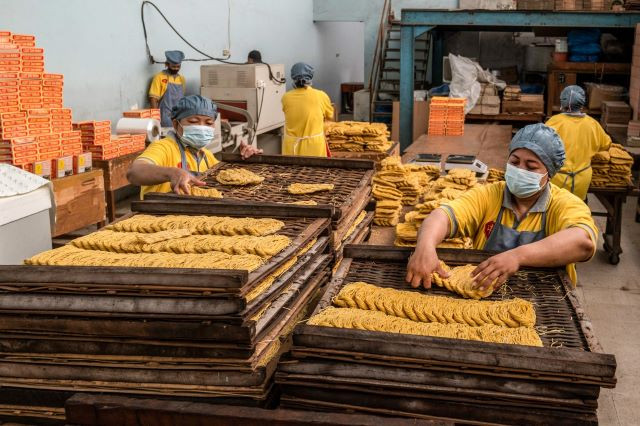Popular Reads
Top Results
Can't find what you're looking for?
View all search resultsPopular Reads
Top Results
Can't find what you're looking for?
View all search resultsFatayat seeks to level field with NU clerics
Women's activists within Nahdlatul Ulama (NU), dubbed the most influential Islamic organization in Indonesia, on Sunday said more discussion was needed between them and the NU's male-dominated board of clerics to prevent the issuance of edicts that discriminated against women
Change text size
Gift Premium Articles
to Anyone

W
omen's activists within Nahdlatul Ulama (NU), dubbed the most influential Islamic organization in Indonesia, on Sunday said more discussion was needed between them and the NU's male-dominated board of clerics to prevent the issuance of edicts that discriminated against women.
During its national congress in Makassar, NU clerics issued an edict supporting the practice of female circumcision, widely regarded as a cruel practice that harms women's reproductive health. The congress also ruled that underage marriage, according to Islamic teaching, is acceptable.
Maria Ulfah Anshor, a former chairwoman of Fatayat, the NU women's wing, said information regarding women's health, including the negative effects of female circumcision and minor marriage, had not been properly discussed with NU clerics.
"Fatayat was not doing enough to inform the clerics *about the negative impacts of these edicts*," Maria said during the Fatayat XIV Congress in Jakarta on Sunday.
The meeting elected Ida Fauziah, a lawmaker of the National Awakening Party (PKB), as the new chairwoman of Fatayat. Ida had earlier vowed to hold more discussions on women's issues with the top clerics.
In deliberating women's issues, the clerics' lack of understanding of women's reproductive health and their tendency to only refer to the literal meaning of the Koran and hadiths had led them to overlook women's rights, Maria said.
"Fatayat looks at reality and Islamic literature when it examines issues of minor marriage and female circumcision," she said.
"However, most of the clerics attending the congress had referred solely to the classic Islamic literature."
The ulema had referred to the hadith, claiming the fact that the Prophet had married Aisyah when she was only nine years old somehow justified underage marriage.
"The failure to consider the social context of Aisyah's marriage has led to misinterpretation of the hadith," Maria said.
"We need to consider the negative impacts of minor marriage on women's reproductive health.
"Fiqh *Islamic philosophy of law* states that if something poses more danger than benefit, it should not be done," she said.
Fatayat members decided that female circumcision was mubah, or allowed but not recommended.
"But, in practice we prohibit the practice of female circumcision because it disadvantages women," Maria said.
Minor marriage and female circumcision are still common in most provinces in Indonesia. In East Java some of the regencies where minor marriage remains common are Bondowoso, Situmenep and Situbondo.
"We often go to grassroots communities and educate them about the negative impacts of minor marriage," East Java Fatayat chairwoman Faridatul Harum said.
In Sukabumi, female circumcision is also still the norm.
"It is still being practiced because people believe it is written in hadith," Didah Halimah, from the regency's Fatayat, said. (map)









